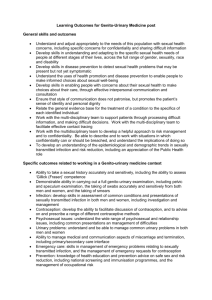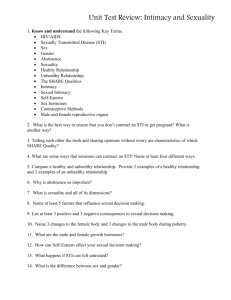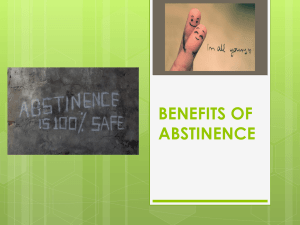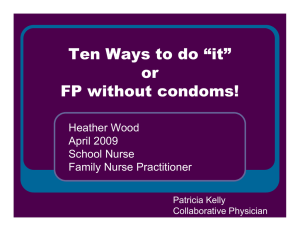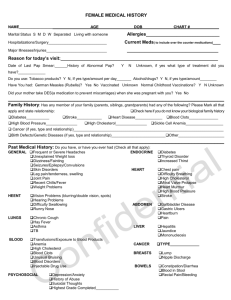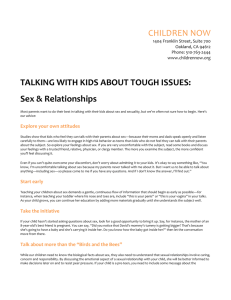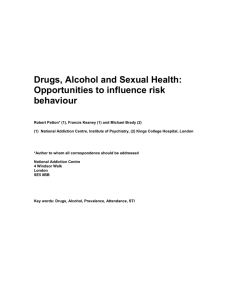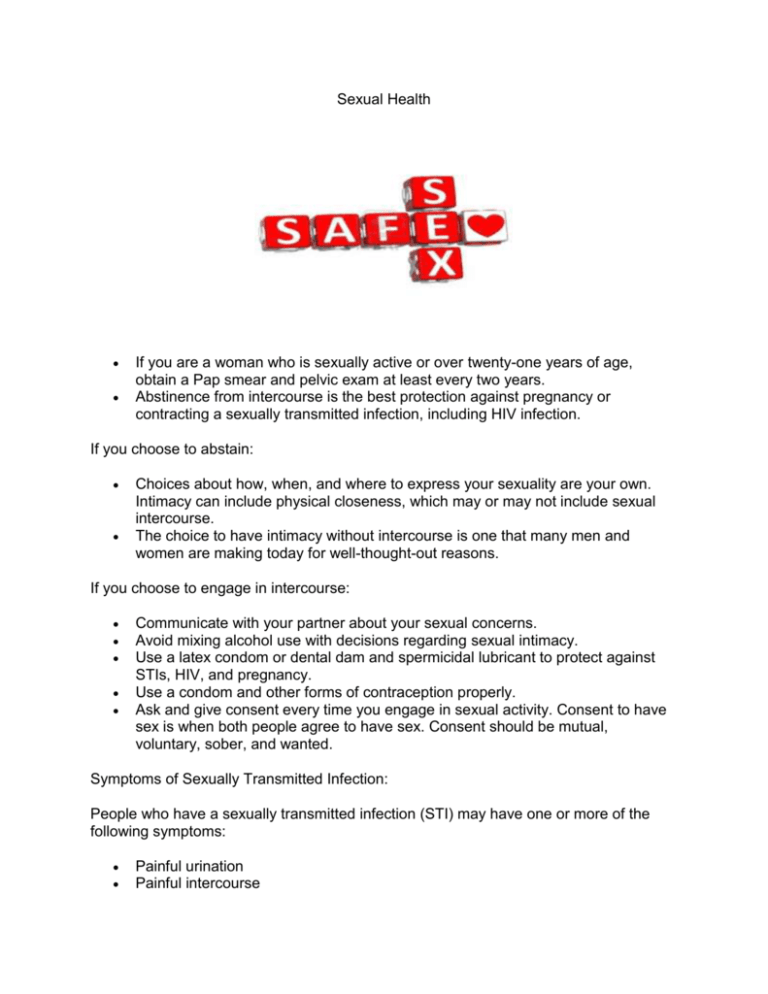
Sexual Health
If you are a woman who is sexually active or over twenty-one years of age,
obtain a Pap smear and pelvic exam at least every two years.
Abstinence from intercourse is the best protection against pregnancy or
contracting a sexually transmitted infection, including HIV infection.
If you choose to abstain:
Choices about how, when, and where to express your sexuality are your own.
Intimacy can include physical closeness, which may or may not include sexual
intercourse.
The choice to have intimacy without intercourse is one that many men and
women are making today for well-thought-out reasons.
If you choose to engage in intercourse:
Communicate with your partner about your sexual concerns.
Avoid mixing alcohol use with decisions regarding sexual intimacy.
Use a latex condom or dental dam and spermicidal lubricant to protect against
STIs, HIV, and pregnancy.
Use a condom and other forms of contraception properly.
Ask and give consent every time you engage in sexual activity. Consent to have
sex is when both people agree to have sex. Consent should be mutual,
voluntary, sober, and wanted.
Symptoms of Sexually Transmitted Infection:
People who have a sexually transmitted infection (STI) may have one or more of the
following symptoms:
Painful urination
Painful intercourse
Unusual genital discharge
Bleeding between menstrual periods
Genital sores
Unusual cramping
Genital itching
If you have any of these symptoms or have been exposed to a STI through a partner,
you should see your healthcare provider as soon as possible. Some people have no
symptoms; if you think you have a STI, come to Student Health Services for an
examination and testing. Most forms of contraception are available at Student Health
Services. Condom, dental dams, and lubricants are always free. To make an
appointment at Student Health Services, call 910.521.6219.

